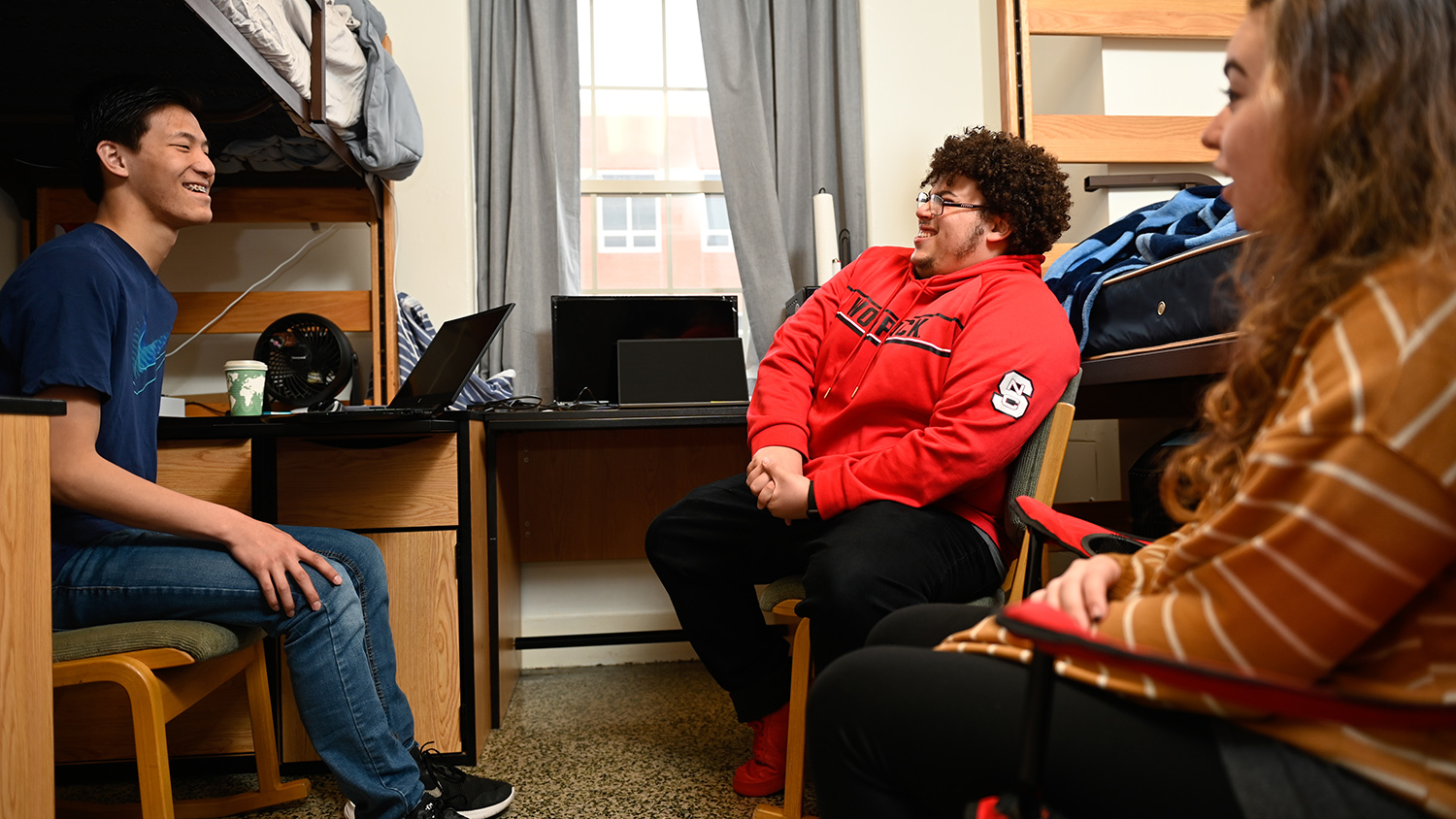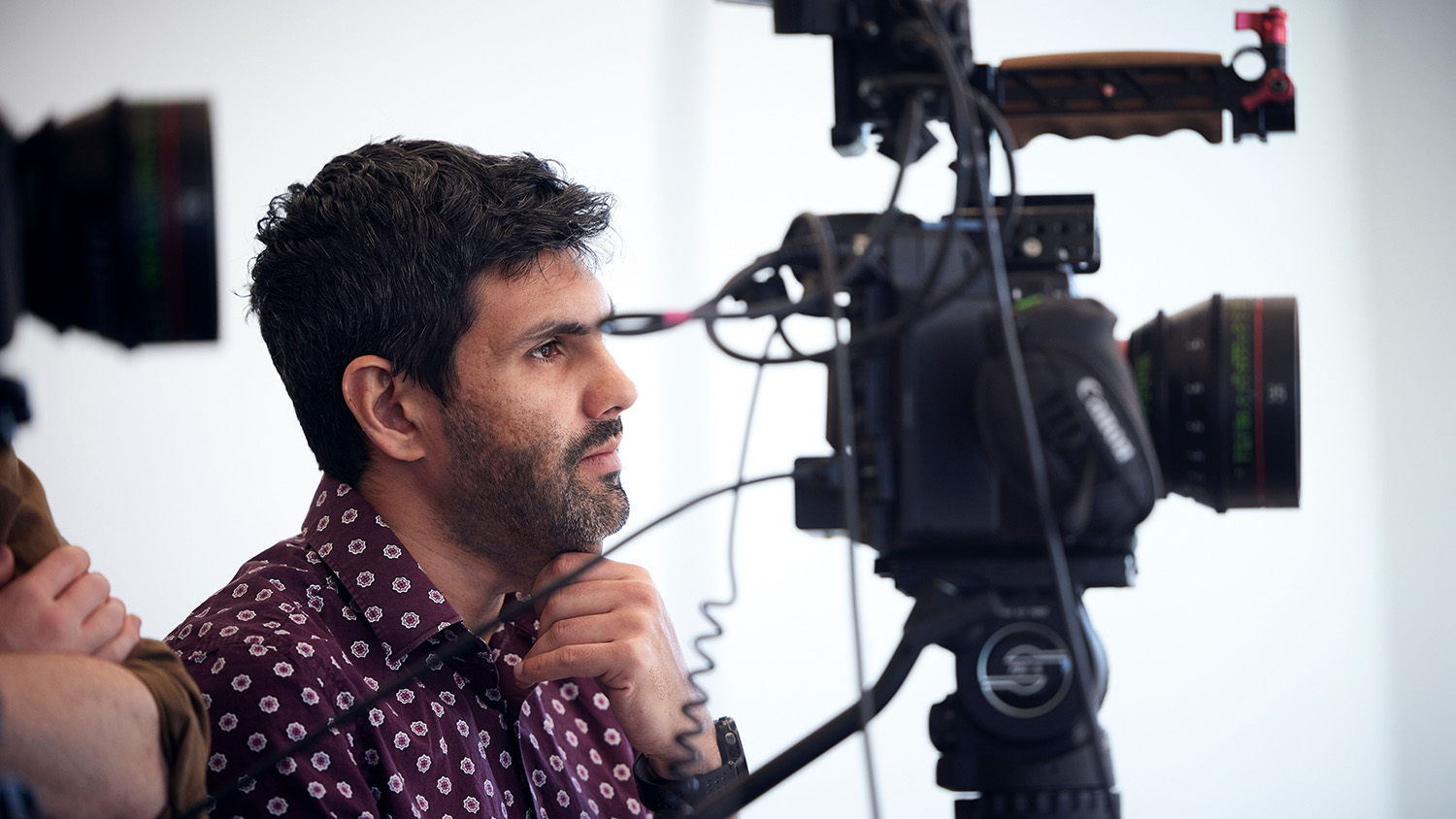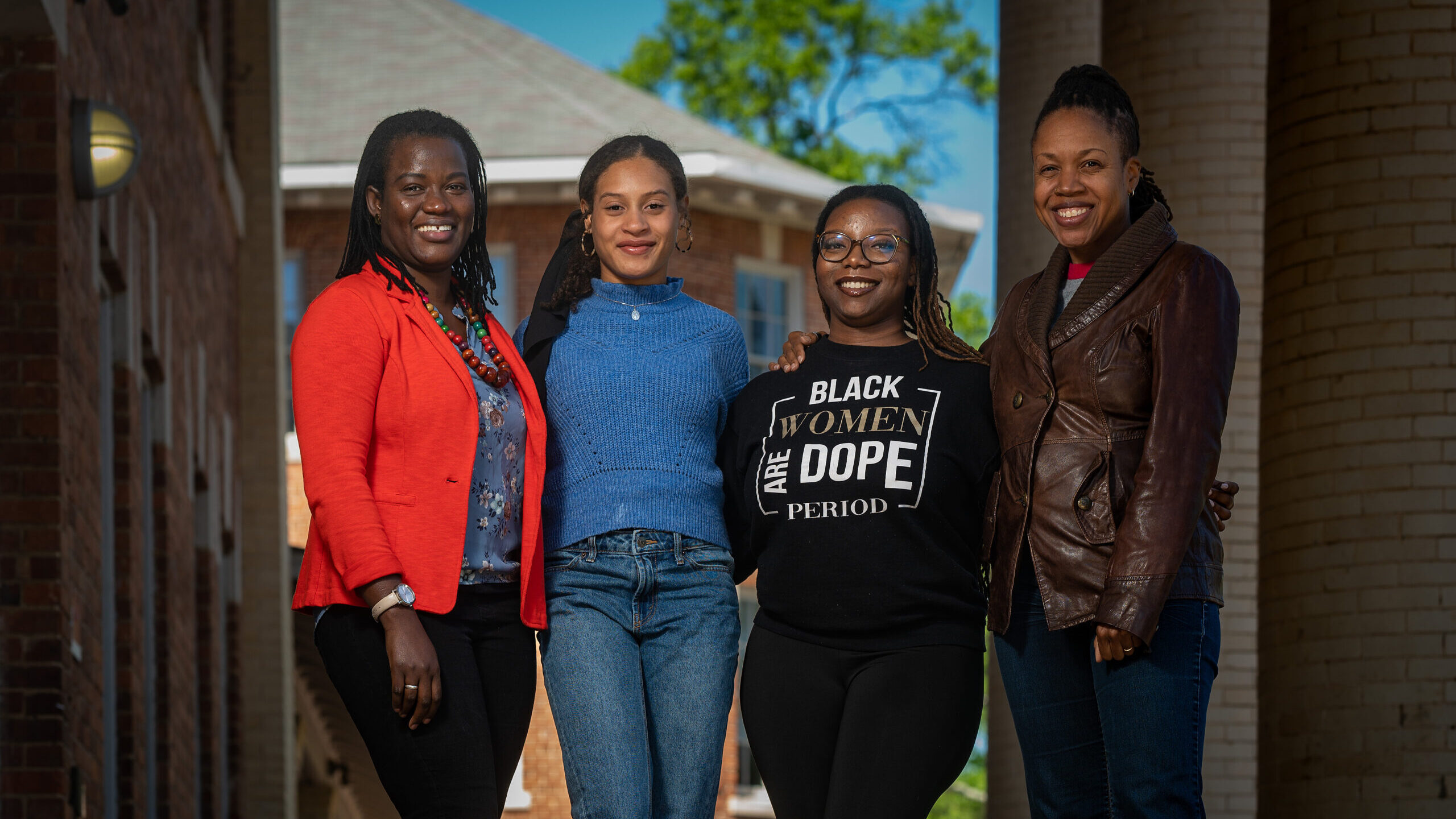Archiving U.S. History
Alumna Meredith Evans Preserves History at Jimmy Carter Presidential Library, Museum
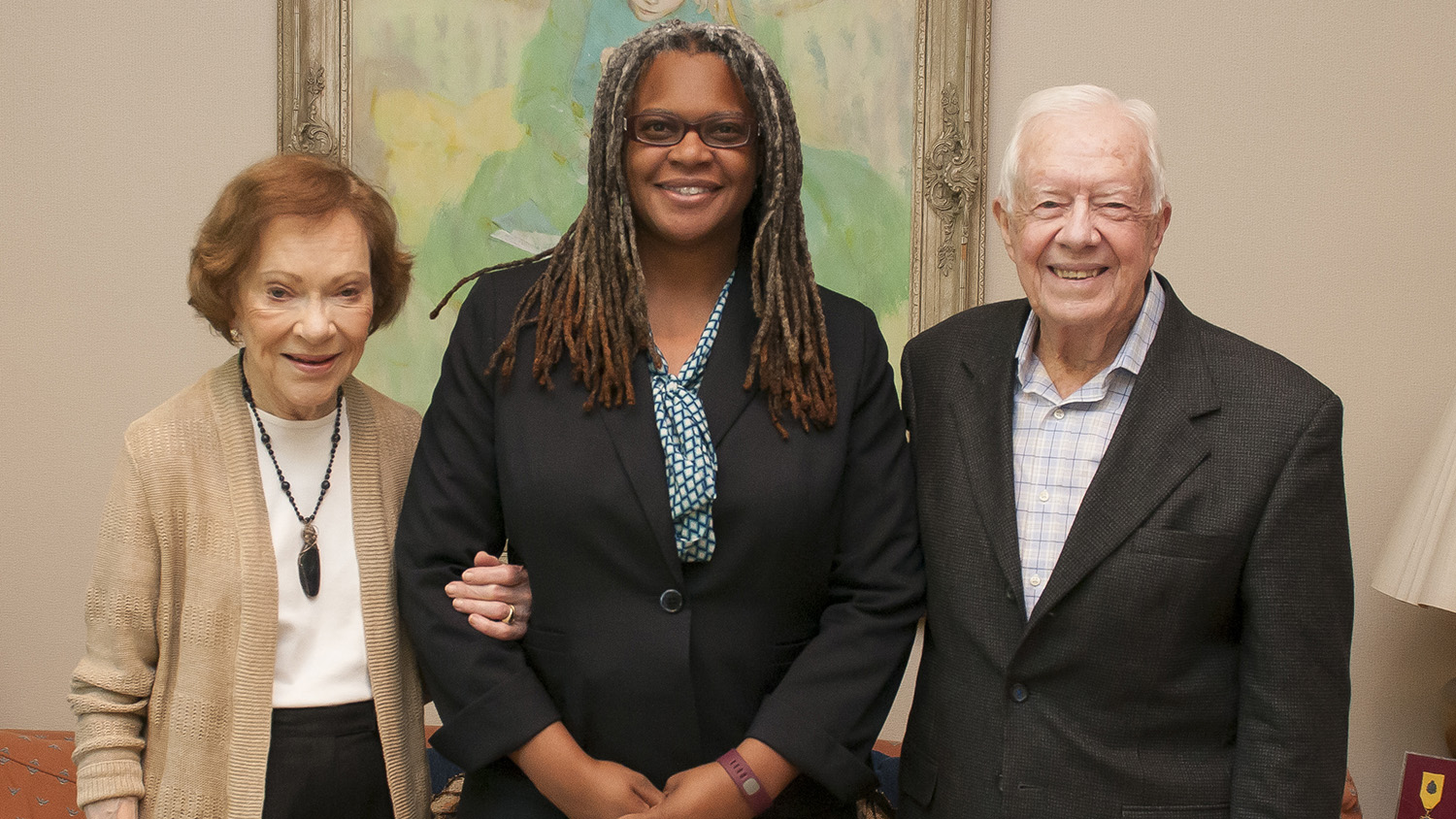
What can you do with an NC State master’s degree in public history? Ask Meredith Evans, director of the Jimmy Carter Presidential Library and Museum.
“A degree in public history exposes you to the lived, shared and often contested realities of cultural heritage and cultural heritage institutions,” Evans says. “It teaches you how to identify and develop relationships to promote engagement, ensure access and, hopefully, create pathways to understanding.”
Administered by the National Archives and Records Administration, the Carter Library offers more than 100,000 annual visitors a close-up view of the Carter presidency and insight into the inner workings of government — all with a focus on the importance of civic engagement. In the library’s reading room, researchers have direct access to records of the Carter administration, the papers of the president and first lady, and a host of associated individuals.
“As a whole, we strive to make accessible all papers, records, objects — including a life-size replica of the Oval Office — and other historical materials of President Carter, his administration, family and life after the presidency,” Evans says.
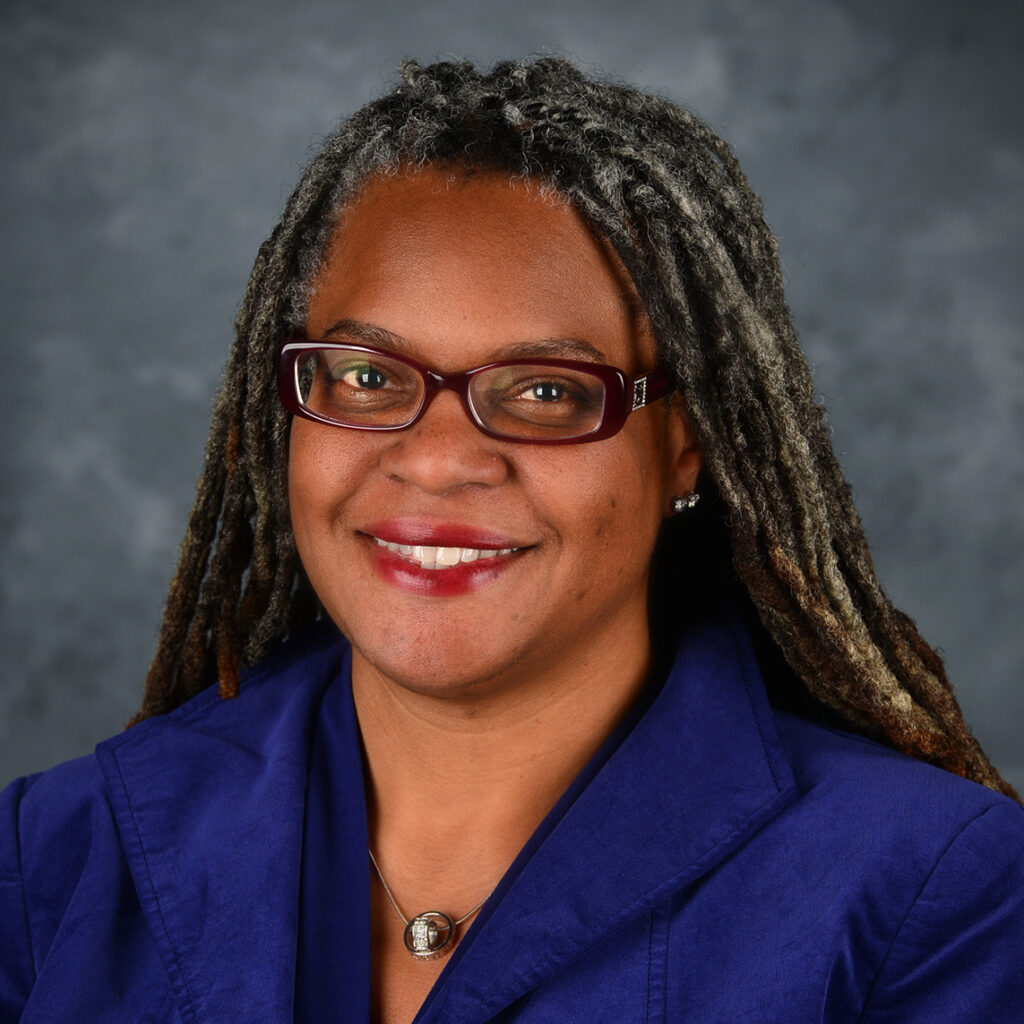
Evans is the first African American woman to serve as director of a presidential library. She describes the appointment as an honor.
“I am humbled that I continue to create a path for others and to inspire communities of people who look like me to see that anything is possible,” she says.
Evans’ link to the Carters traces to her childhood. At age 4, she wrote to then-president Carter asking to have her birthday party at the White House and sent $1.01 to support his presidency. He declined both, but included a note and a brochure of the White House when he returned her money.
Years later, she met the Carters at a church in Plains, Georgia. Now Evans, who still has the note and the dollar, works for the former president and first lady. She meets with them regularly to discuss programming, events, and exhibits.
“Having this job was destined to be,” Evans says.
Her greatest contribution as director, she says, is “creating a unified vision among the staff and creating opportunities to engage and expand the audience — not just in numbers but in terms of who we are reaching.”
“Having a public history degree is the best of both worlds. It gives you subject expertise and ways to apply it.”
This work has included hosting programs on important topics like the first 100 days of a U.S. president; civil and human rights; the Equal Rights Amendment; and gentrification versus urban renewal. As an archivist and former president of the Society of American Archivists, Evans provides and authenticates materials that “tell stories about the past that inform the future.”
In addition to her current role, Evans’ archival work focuses on documenting the African American experience in the U.S., including documenting and preserving records from African American churches in the Atlanta area. She has also focused extensively on developing systems to collect and preserve content related to social justice and civil rights protests.
Two projects in particular, Documenting Ferguson and DocNow, stem from her time in St. Louis and the protests that followed the shooting of Michael Brown in Ferguson, Missouri. The work that came out of this project focused on archiving social media, and in particular Twitter.
Evans makes it clear that archival practice involves more than preserving printed documents and records but also archiving digital information, including social media. Evans says social media captures events as they unfold and in the voice and perspective of those involved. She acknowledges that this can make it difficult to track and verify.
At NC State, Evans says she learned skills that have been integral throughout her career: defining and understanding audiences and sharing history and historical writing in a practical way.
”Having a public history degree is the best of both worlds,” she adds. “It gives you subject expertise and ways to apply it.”
Evans also valued the classes and faculty at NC State, which she says “were fantastic.”
And to anyone considering entering the profession, here’s Evans’ advice:
“This profession draws people with different backgrounds, perspectives and origins that accurately represent the dynamic society in which we live,” Evans says. “They should know that they are taking on a social responsibility.”
- Categories:
